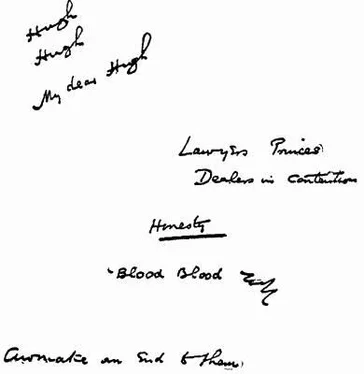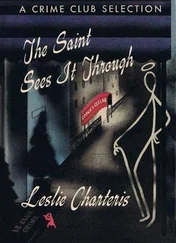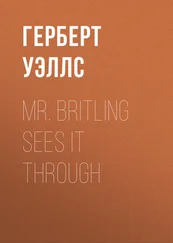Herbert Wells - Mr. Britling Sees It Through
Здесь есть возможность читать онлайн «Herbert Wells - Mr. Britling Sees It Through» весь текст электронной книги совершенно бесплатно (целиком полную версию без сокращений). В некоторых случаях можно слушать аудио, скачать через торрент в формате fb2 и присутствует краткое содержание. Жанр: Классическая проза, на английском языке. Описание произведения, (предисловие) а так же отзывы посетителей доступны на портале библиотеки ЛибКат.
- Название:Mr. Britling Sees It Through
- Автор:
- Жанр:
- Год:неизвестен
- ISBN:нет данных
- Рейтинг книги:4 / 5. Голосов: 1
-
Избранное:Добавить в избранное
- Отзывы:
-
Ваша оценка:
- 80
- 1
- 2
- 3
- 4
- 5
Mr. Britling Sees It Through: краткое содержание, описание и аннотация
Предлагаем к чтению аннотацию, описание, краткое содержание или предисловие (зависит от того, что написал сам автор книги «Mr. Britling Sees It Through»). Если вы не нашли необходимую информацию о книге — напишите в комментариях, мы постараемся отыскать её.
Mr. Britling Sees It Through — читать онлайн бесплатно полную книгу (весь текст) целиком
Ниже представлен текст книги, разбитый по страницам. Система сохранения места последней прочитанной страницы, позволяет с удобством читать онлайн бесплатно книгу «Mr. Britling Sees It Through», без необходимости каждый раз заново искать на чём Вы остановились. Поставьте закладку, и сможете в любой момент перейти на страницу, на которой закончили чтение.
Интервал:
Закладка:
The very justification our English poet has found for a thousand overbearing actions in the East! "Forget not order and the real," that was the underlying message of bomb and gas and submarine. After all, what right had we English not to have a gun or an aeroplane fit to bring down that Zeppelin ignominiously and conclusively? Had we not undertaken Empire? Were we not the leaders of great nations? Had we indeed much right to complain if our imperial pose was flouted? "There, at least," said Mr. Britling's reason, "is one of the lines of thought that brought that unseen cruelty out of the night high over the houses of Filmington-on-Sea. That, in a sense, is the cause of this killing. Cruel it is and abominable, yes, but is it altogether cruel? Hasn't it, after all, a sort of stupid rightness?—isn't it a stupid reaction to an indolence at least equally stupid?"
What was this rightness that lurked below cruelty? What was the inspiration of this pressure of spite, this anger that was aroused by ineffective gentleness and kindliness? Was it indeed an altogether evil thing; was it not rather an impulse, blind as yet, but in its ultimate quality as good as mercy , greater perhaps in its ultimate values than mercy?
This idea had been gathering in Mr. Britling's mind for many weeks; it had been growing and taking shape as he wrote, making experimental beginnings for his essay, "The Anatomy of Hate." Is there not, he now asked himself plainly, a creative and corrective impulse behind all hate? Is not this malignity indeed only the ape-like precursor of the great disciplines of a creative state?
The invincible hopefulness of his sanguine temperament had now got Mr. Britling well out of the pessimistic pit again. Already he had been on the verge of his phrase while wandering across the rushy fields towards Market Saffron; now it came to him again like a legitimate monarch returning from exile.
"When hate shall have become creative energy....
"Hate which passes into creative power; gentleness which is indolence and the herald of euthanasia....
"Pity is but a passing grace; for mankind will not always be pitiful."
But meanwhile, meanwhile.... How long were men so to mingle wrong with right, to be energetic without mercy and kindly without energy?...
For a time Mr. Britling sat on the lonely parade under the stars and in the sound of the sea, brooding upon these ideas.
His mind could make no further steps. It had worked for its spell. His rage had ebbed away now altogether. His despair was no longer infinite. But the world was dark and dreadful still. It seemed none the less dark because at the end there was a gleam of light. It was a gleam of light far beyond the limits of his own life, far beyond the life of his son. It had no balm for these sufferings. Between it and himself stretched the weary generations still to come, generations of bickering and accusation, greed and faintheartedness, and half truth and the hasty blow. And all those years would be full of pitiful things, such pitiful things as the blackened ruins in the town behind, the little grey-faced corpses, the lives torn and wasted, the hopes extinguished and the gladness gone....
He was no longer thinking of the Germans as diabolical. They were human; they had a case. It was a stupid case, but our case, too, was a stupid case. How stupid were all our cases! What was it we missed? Something, he felt, very close to us, and very elusive. Something that would resolve a hundred tangled oppositions....
His mind hung at that. Back upon his consciousness came crowding the horrors and desolations that had been his daily food now for three quarters of a year. He groaned aloud. He struggled against that renewed envelopment of his spirit. "Oh, blood-stained fools!" he cried, "oh, pitiful, tormented fools!
"Even that vile airship was a ship of fools!
"We are all fools still. Striving apes, irritated beyond measure by our own striving, easily moved to anger."
Some train of subconscious suggestion brought a long-forgotten speech back into Mr. Britling's mind, a speech that is full of that light which still seeks so mysteriously and indefatigably to break through the darkness and thickness of the human mind.
He whispered the words. No unfamiliar words could have had the same effect of comfort and conviction.
He whispered it of those men whom he still imagined flying far away there eastward, through the clear freezing air beneath the stars, those muffled sailors and engineers who had caused so much pain and agony in this little town.
" Father, forgive them, for they know not what they do. "
CHAPTER THE FOURTH
IN THE WEB OF THE INEFFECTIVE
§ 1
Hugh's letters were becoming a very important influence upon Mr. Britling's thought. Hugh had always been something of a letter-writer, and now what was perhaps an inherited desire to set things down was manifest. He had been accustomed to decorate his letters from school with absurd little sketches—sometimes his letters had been all sketches—and now he broke from drawing to writing and back to drawing in a way that pleased his father mightily. The father loved this queer trick of caricature; he did not possess it himself, and so it seemed to him the most wonderful of all Hugh's little equipment of gifts. Mr. Britling used to carry these letters about until their edges got grimy; he would show them to any one he felt capable of appreciating their youthful freshness; he would quote them as final and conclusive evidence to establish this or that. He did not dream how many thousands of mothers and fathers were treasuring such documents. He thought other sons were dull young men by comparison with Hugh.
The earlier letters told much of the charms of discipline and the open air. "All the bother about what one has to do with oneself is over," wrote Hugh. "One has disposed of oneself. That has the effect of a great relief. Instead of telling oneself that one ought to get up in the morning, a bugle tells you that.... And there's no nonsense about it, no chance of lying and arguing about it with oneself.... I begin to see the sense of men going into monasteries and putting themselves under rules. One is carried along in a sort of moral automobile instead of trudging the road...."
And he was also sounding new physical experiences.
"Never before," he declared, "have I known what fatigue is. It's a miraculous thing. One drops down in one's clothes on any hard old thing and sleeps...."
And in his early letters he was greatly exercised by the elementary science of drill and discipline, and the discussion of whether these things were necessary. He began by assuming that their importance was overrated. He went on to discover that they constituted the very essentials of all good soldiering. "In a crisis," he concluded, "there is no telling what will get hold of a man, his higher instincts or his lower. He may show courage of a very splendid sort—or a hasty discretion. A habit is much more trustworthy than an instinct. So discipline sets up a habit of steady and courageous bearing. If you keep your head you are at liberty to be splendid. If you lose it, the habit will carry you through."
The young man was also very profound upon the effects of the suggestion of various exercises upon the mind.
"It is surprising how bloodthirsty one feels in a bayonet charge. We have to shout; we are encouraged to shout. The effect is to paralyse one's higher centres. One ceases to question—anything. One becomes a 'bayoneteer.' As I go bounding forward I imagine fat men, succulent men ahead, and I am filled with the desire to do them in neatly. This sort of thing—"
A sketch of slaughter followed, with a large and valiant Hugh leaving a train of fallen behind him.
Читать дальшеИнтервал:
Закладка:
Похожие книги на «Mr. Britling Sees It Through»
Представляем Вашему вниманию похожие книги на «Mr. Britling Sees It Through» списком для выбора. Мы отобрали схожую по названию и смыслу литературу в надежде предоставить читателям больше вариантов отыскать новые, интересные, ещё непрочитанные произведения.
Обсуждение, отзывы о книге «Mr. Britling Sees It Through» и просто собственные мнения читателей. Оставьте ваши комментарии, напишите, что Вы думаете о произведении, его смысле или главных героях. Укажите что конкретно понравилось, а что нет, и почему Вы так считаете.






